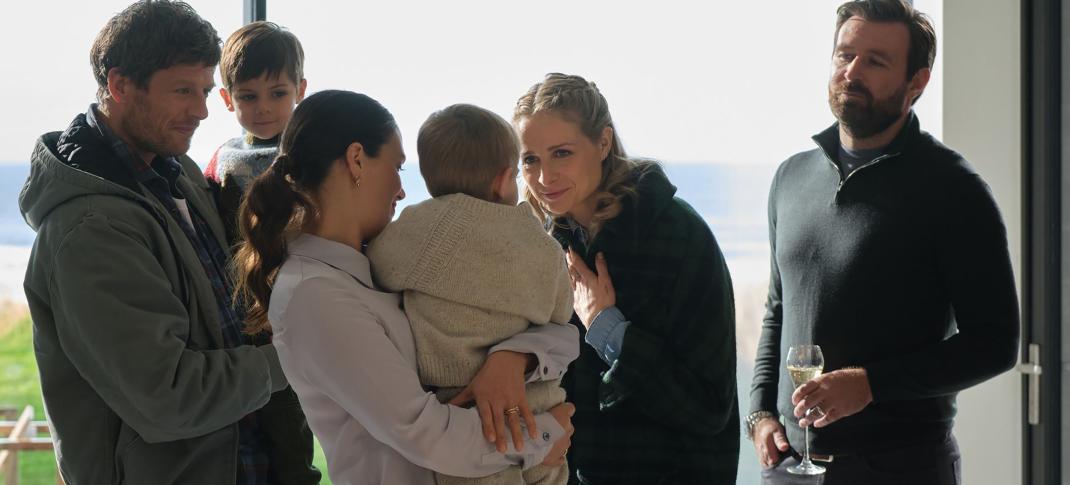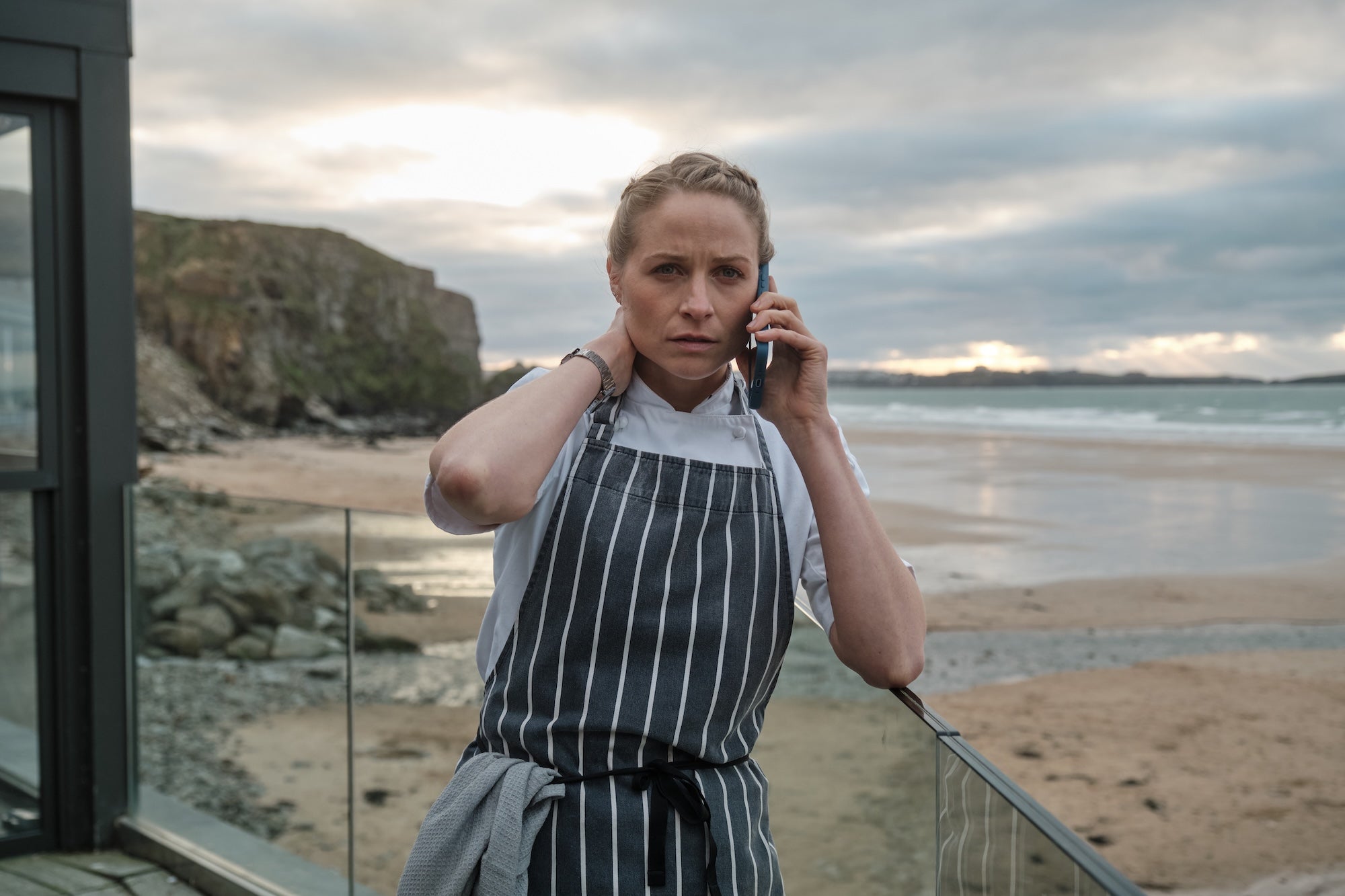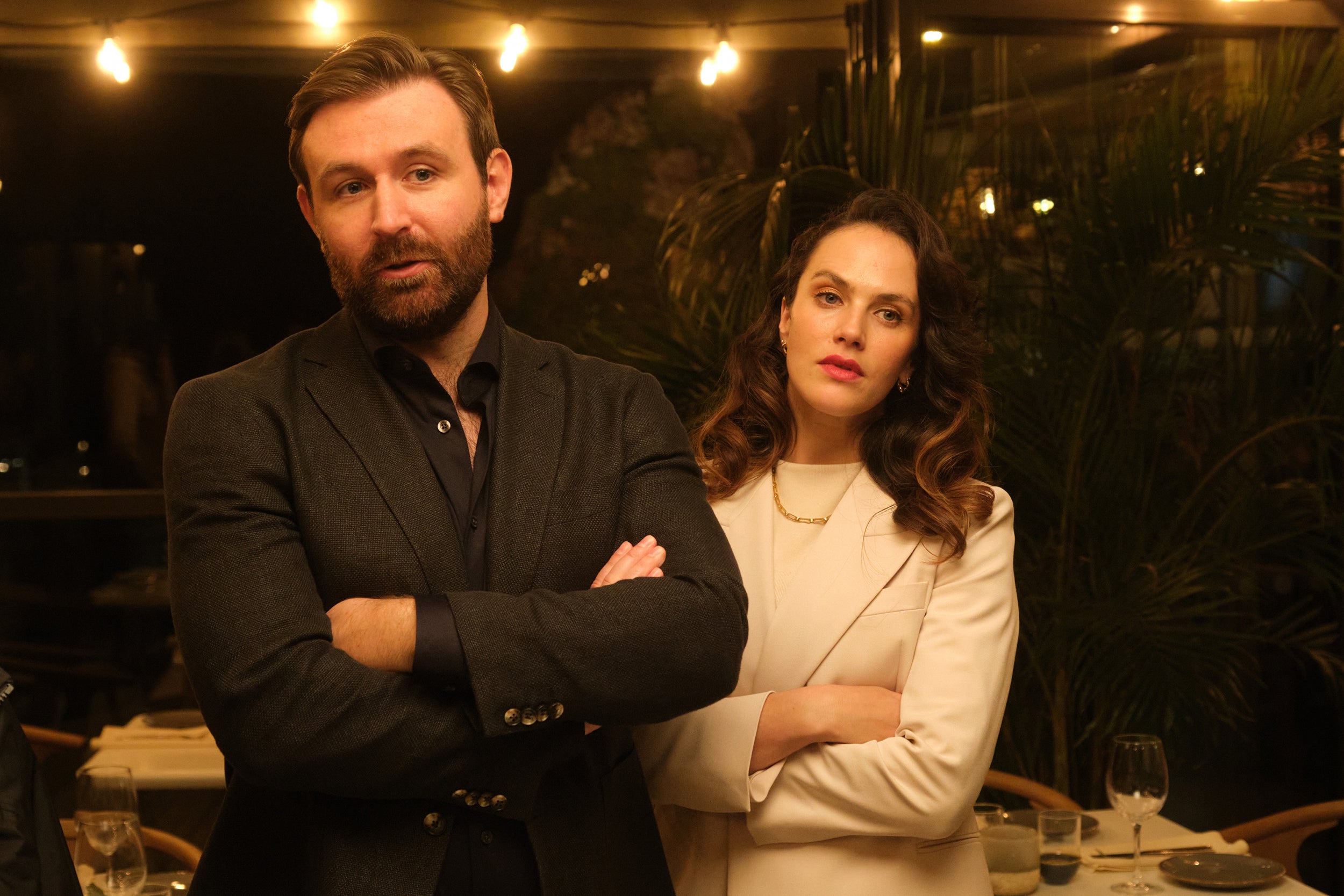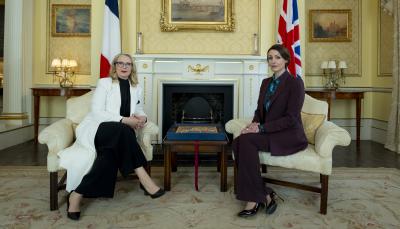Family Thriller 'Playing Nice' Plays Unpleasant & Repetitive

James Norton, Jessica Brown-Findlay, Niamh Algar, and James McArdle in 'Playing Nice'
BritBox
Does it have urgent, modern themes, or is it an old-school Gothic drama with a contemporary coat of paint? This question arises in all four episodes of Playing Nice, a thriller miniseries written by Grace Ofori-Attah that premiered in Britain around the New Year. The series takes a head-turning, unlikely yet possible scenario – what if you took the wrong baby home from the hospital and your toddler actually belongs to someone else? – and greedily injects it with infuriating, ludicrous twists and suspense.
Our nice, ordinary couple is Pete (James Norton) and Maddie (Niamh Algar), whose current money anxieties have materialised after Maddie recovered from a severe bout of post-partum depression – they’ve gone through their fair share of suffering and worry in the three brief years their son has been alive. But their world is upended when the hospital informs them that their son Theo (Alban Guo) is not biologically theirs. Enter the smarmy, rich Miles (James McArdle) and his priss, timid wife Lucy (Jessica Brown Findlay), whose child David (Fraser Cornelissen) has developmental issues from Maddie’s difficult birth.
The situation is horrid, but at first, there’s nothing off-putting about Miles and Lucy other than being smug and overfamiliar – putting up with noxious personalities may be the price that Pete and Maddie have to pay to ensure their swapped-at-birth kids have a safe, happy upbringing.
But here’s the kicker – Miles decides he wants both kids, and boasts an arsenal of manipulative and bullying tactics to prise Theo from Pete and Maddie’s hands, dredging up their every imperfection and abusing the care system to get them out of the picture. Like all manipulation dramas, Playing Nice engages primarily on a level of frustration, deepening the audience’s need for cathartic retribution with every new flagrant distortion of the truth.
But for all its depiction of alpha male toxicity and the blind spots of child protection systems, Playing Nice is a thriller about a malicious and powerful man consumed with violent, repressed urges and more power than those in his way of entrenching his patriarchal authority. This is simple, classic Gothic stuff, but when it’s handled with no awareness of style or the pleasures of genre fiction, it leaves Playing Nice unpleasant and repetitive.
Norton – an actor capable of a real, wounded type of intensity – is largely flat here, pushed into a far more self-pitying mode than is in his wheelhouse. This seems out of dramatic necessity – because the character of Miles wields total control in any scene he shares with Pete and Maddie, McArdle’s toe-curlingly smug and invasive performance dominates Norton’s meeker turn.
Algar fares better: Maddie is a welcome voice of reason through Miles’ escalating controlling gambits – petitioning to change Theo’s birth certificate to acknowledge him and Lucy as the child’s biological parents (thus granting them a lot of access privileges), leveraging Maddie’s history of poor health to question her ability as a mother, spinning a narrative of neglect and inadequacy out of stray observations from Pete’s home – but the characters stay passive for too long, withheld by the wheel-spinning demands of the four-episode structure.
Running at about three hours, Playing Nice desperately needs to be condensed into a two-hour TV movie, one that better utilizes cinematic style and maintains a proper, better-paced momentum.
McArdle – who’s previously appeared in Mary, Queen of Scots, Andor, and Mare of Easttown – is one of the weaker actors in the Playing Nice ensemble, but digs into Miles’ zeal for humiliating Pete and Maddie with an admirable conviction. We run into issues when Miles adapts his coercive powers for mandated therapy sessions and court hearings between the two couples.
Here, Playing Nice commits a common sin of an extended manipulation drama. Every professional representative of the courts, hospitals, and social services is suddenly incredibly gullible to not see through the glaring holes and injustices of what Miles is steamrolling through. Granted, Playing Nice wants to underline how decent, considerate parents can be steamrolled in high-pressure bureaucratic settings by someone who knows how to play to the system’s biases – but in order for Pete and Maddie to be driven to the extremes of desolation they end up at, no one is willing or able to question that Miles isn’t acting in good faith.
There are plenty of ploys and countermoves throughout the back half of Playing Nice, where Pete and Maddie decide to stop compromising with Miles’ insane schemes and actually mount an offensive; however, anyone expecting some nifty courtroom tête-à-têtes or satisfying mental chess games between the two sets of parents will be disappointed. (There are no fewer than two separate deus ex machinas that appear in the final episode.)
Thanks to its nasty, intimately felt central conflict, Playing Nice is not unengaging – it’s hard to dismissively brand a show as ineffective storytelling when the villain’s antics bait you into frustration and indignation about twenty times an episode. However, the show betrays its grounded, social themes with a desire for scandal and preposterous escalation that belongs in a show more honest about its classic genre nature. By maintaining such a straight face, Playing Nice is holding itself back from turning its themes into alarmist, escapist fare, but at least it's exciting TV.
Playing Nice is currently streaming its two-episode premiere on BritBox. The series continues with new episodes over the following two Tuesdays, concluding on September 9, 2025.







